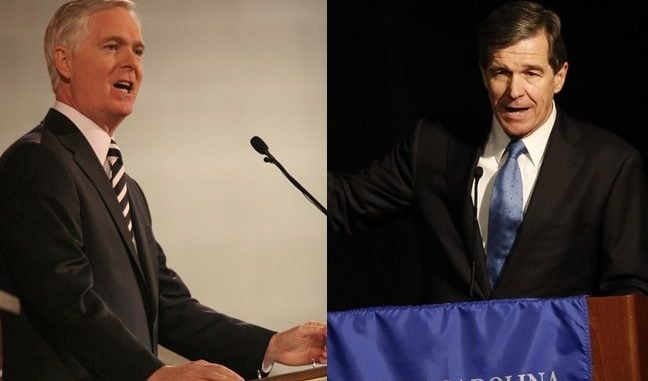
Can lawyers make transparent chief executives? In the post-World War II era, Americans have elected three lawyers to the Oval Office: Richard Nixon, Bill Clinton, and Barack Obama. Only Clinton’s administration could be characterized as transparent, and then not by design but because of persistent leaks.
North Carolina’s last lawyer-governor was Michael F. Easley, a politician from Nash County who had previously served as the state’s attorney general. To put it mildly, Easley’s administration was not one known for allowing the sun to shine in.
Depositions of Easley officials revealed that the administration had a secret “blackout policy” for the conservative-leaning Carolina Journal newspaper, with word going out to state public information officers that calls from the paper’s reporters were not to be returned. Then there is the fact that Easley used a private email account (with an address of “Nick Danger” spelled backward) to avoid public records scrutiny.
But the worst example is that the governor’s office ran a scheme whereby his lead communications staffers instructed agency PIOs both political appointees and career staff to delete emails to and from Easley’s office each day so that they would not appear in public records searches.
Instructing career staff to break the law for you is never a good idea, and as the word leaked out, the media circled its wagons and sued Easley. Easley was defended in the email scandal by Roy Cooper, a politician from Nash County who was serving as the state’s attorney general.
Cooper attempted to settle the suit for $20,000, then waited out the clock on the Easley administration and tried to claim that the media had no standing to sue because Easley was no longer in office. Neither of those tactics worked.Waking up the echoes
Cooper is now governor, and it is too early to tell whether he will run a transparent administration or not. But the echoes of Easley are unmistakable.
First, there is Cooper’s conduct as attorney general, where he claimed to have sent only 14 emails over 16 years. And state media were not happy with Cooper’s handling of public records requests during the scrutiny over the State Bureau of Investigation’s crime lab, with one reporter claiming Cooper was “dragging his feet” on releasing the records.
In his first two months as chief executive, the signs are not encouraging. Rumors around Raleigh are that Cooper may have his own Easley-style media blacklist. And then there’s multiple reports that Larry Hall, lawyer-governor Cooper’s nominee to head the Department of Military and Veterans Affairs, challenged Carolina Journal reporter Dan Way’s right to report on a meeting of the Military Affairs Commission. An eyewitness claims that Hall said the public meeting was not a “media event,” a term that has no meaning in the context of the state’s open meetings law.
Way was at the early February meeting to report on a presentation by physicist John Droz on wind-energy facilities in the state. After Hall’s inappropriate comments, commission chairman Brig. Gen. Mabry “Bud” Martin who had resisted pressure from the governor’s office to take the presentation off the meeting’s agenda entirely was unsure what to do. First he scrubbed Droz’s presentation from the agenda, after which Way left the meeting. But then Martin reversed himself and asked Droz to give the presentation. Jonathan Jones, director of the N.C. Open Government Coalition, called the move “a pretty clear violation” of the law.
Martin is new to state government and can be forgiven for being flustered in the face of pressure from Cooper’s cabinet member. But Larry Hall has no excuse.
Hall has been an elected representative for a decade, first appointed to the General Assembly by lawyer-governor Easley in 2006. Hall knows the ins and outs of state government. Indeed, he was in Democratic leadership for half of his tenure. He knows the state’s public records and open meetings laws, and he is brace yourself a lawyer.
Cooper must set a marker now that his administration will not tolerate the kind of illegal shenanigans Hall encouraged. The governor is certainly aware of the Easley scandals, which show that he won’t get any help from his friends in the legacy media.
On other matters, even scandals, Cooper can expect a level of ideological courtesy from the press corps. But not when it’s about access and public records. Information, after all, is the news media’s stock in trade. They will protect it fiercely.
A firm statement from Cooper, followed by clear shifts away from the last lawyer-governor’s policies, might just begin to drown out the rising echoes of Easley.
Drew Elliot is a member of the North State Journal’s editorial board, separate from the news staff. Unlike other newspapers, the North State Journal does not publish unsigned editorials; the author or authors of every editorial, letter, op-ed, and column is prominently displayed. To submit a letter or op-ed, see our submission guidelines.



